Today (12 December, 2022) marks the 70th anniversary of the first dive by pioneering British underwater archaeologist Honor Frost.
Born in 1917, Frost carried out that dive in the winter of 1952 – not on the wreck of an historic ship in the Mediterranean Sea but in 6m of icy water, late at night in a snow-covered London garden.
Also read : First woman cave-diver enters Hall of Fame
Many years later she told BBC Women’s Hour that a Polish engineer called Kazimierz Bobak had invited her to visit an “experimental well” in Wimbledon.
“He had just invented a pump that coupled up with a complete diving-suit – it wasn’t scuba – and he said that I could try it.
“As I always considered that any time spent on the surface was a waste of time I was very, very thrilled by this… They gave me a torch, so I got into the well and sat on the bottom for some time.“ Becoming absorbed in shining her light through dead leaves, she eventually thought: “’Oh dear, they must be pumping away!’, because they had to pump for every breath of air that I took.”
Also read: State archaeologist dies on warm-up dive
Weren’t you frightened? asked the interviewer. “No, I suppose one should be… I have a respect for the sea, but I’ve never been properly frightened of water,” she replied.
Immediately hooked on the idea of underwater exploration, Frost abandoned her career in art and theatre and, according to the Honor Frost Foundation, “began a new life-long, hugely influential, career in underwater archaeology”.
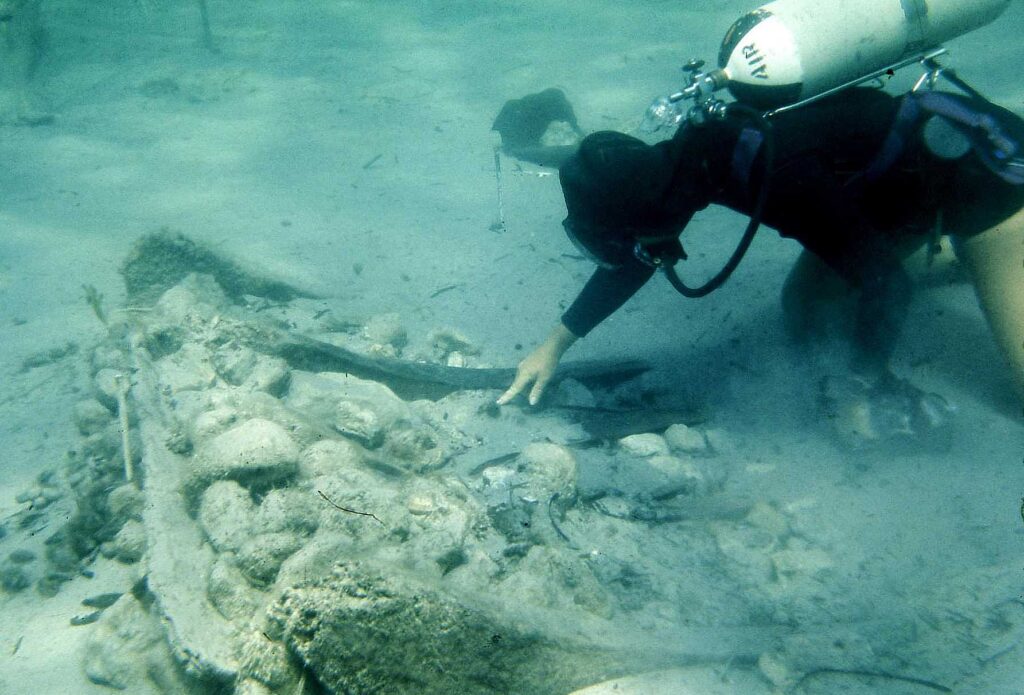
A woman in the male-dominated fields of both diving and maritime archaeology in the 1950s, Frost found herself at the centre of the latter’s development as a discipline.
She would be one of the first archaeologists to demonstrate that excavations under water could be carried out to the same standards as on land, says the foundation.
But first she had to undertake her diver training, which she did in the warmer Mediterranean, where scuba was still being refined in the south of France. She was further inspired by being able to dive on the wreck of a Roman ship during her time there.
Frost told the BBC that she had been fortunate in joining the world’s first civilian diving club. “In those days we didn’t know very much about the medical side – diving physiology ‐ and certainly not about the apparatus, because it was being invented and people were just starting to produce it commercially.
“So the problem was always improving the designs, and I was very fortunate because I never had to buy anything – I was always given it to test out, like everyone else.”
She went on to develop her archaeological skills when she joined another female archaeologist, Kathleen Kenyon, as a draughtsman for excavations in Jericho in 1957.
She then moved on to Lebanon to explore the ancient harbours of Byblos, Sidon and Tyre, developing in the process a special interest in ancient ports, harbours and anchors.
Frost was convinced that anchors could play a key role in identifying wrecks and revealing ancient patterns of trade, and such artefacts continued to fascinate her throughout her life, says the foundation.
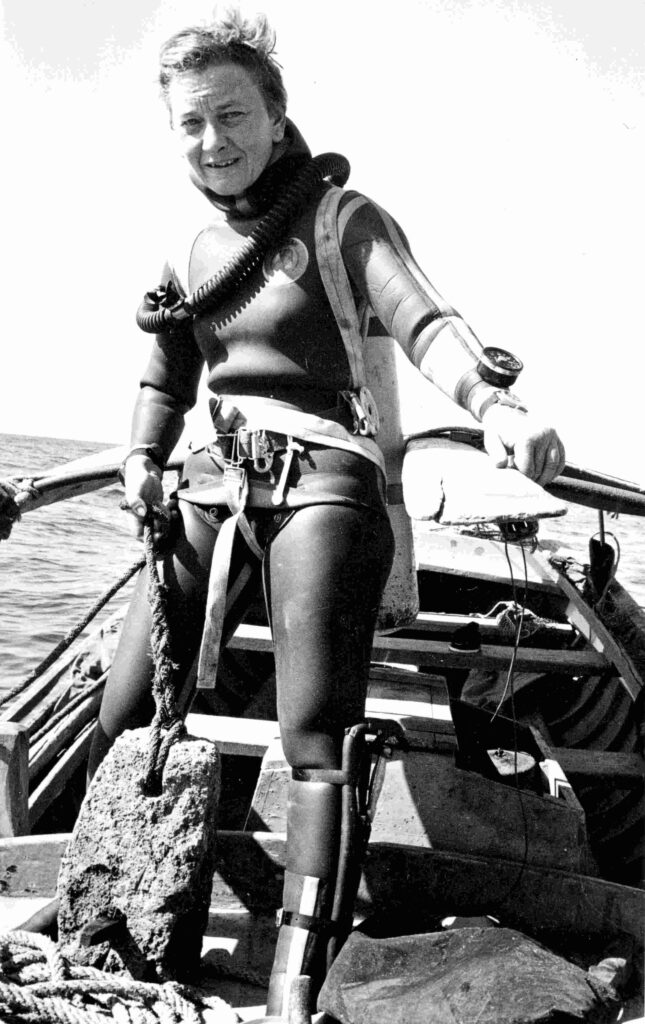
As early as 1958, Frost took part in the first excavation of a 13th-century BC Bronze Age shipwreck that had carried a cargo of copper and tin ingots and was discovered off the coast of Cape Gelidonya in southern Turkey.
During this project, the foundation says that Frost helped to develop new techniques to help diving archaeologists investigate sites. The project is now considered to have been the first systematic underwater excavation of a shipwreck.
“These hugely influential excavations were to play a crucial role in the development of underwater archaeology and pioneered techniques used today,” it says. “Honor went on to dive on and excavate many more historic underwater sites and was instrumental in promoting maritime archaeology as a discipline.”
She also helped to found the Council for Nautical Archaeology, served for many years on the council for the Society for Nautical Research and played a part in establishing the International Journal of Nautical Archaeology in 1972.
“Honor Frost was at the forefront of the evolution of maritime archaeology,” sums up Alison Cathie, chair of the foundation’s board of trustees. “Her exquisite drawings, meticulous attention to detail and her brilliant professionalism soon established her reputation.
“In 1968 she was commissioned by UNESCO to explore the port of Alexandria, identifying the remains of the lighthouse and a colossal statue of Isis.
Soon after, she brought up a Punic wreck off the coast of Marsala, Sicily, which proved to be a really important excavation in many ways, and her foundation continues to contribute to research there.”
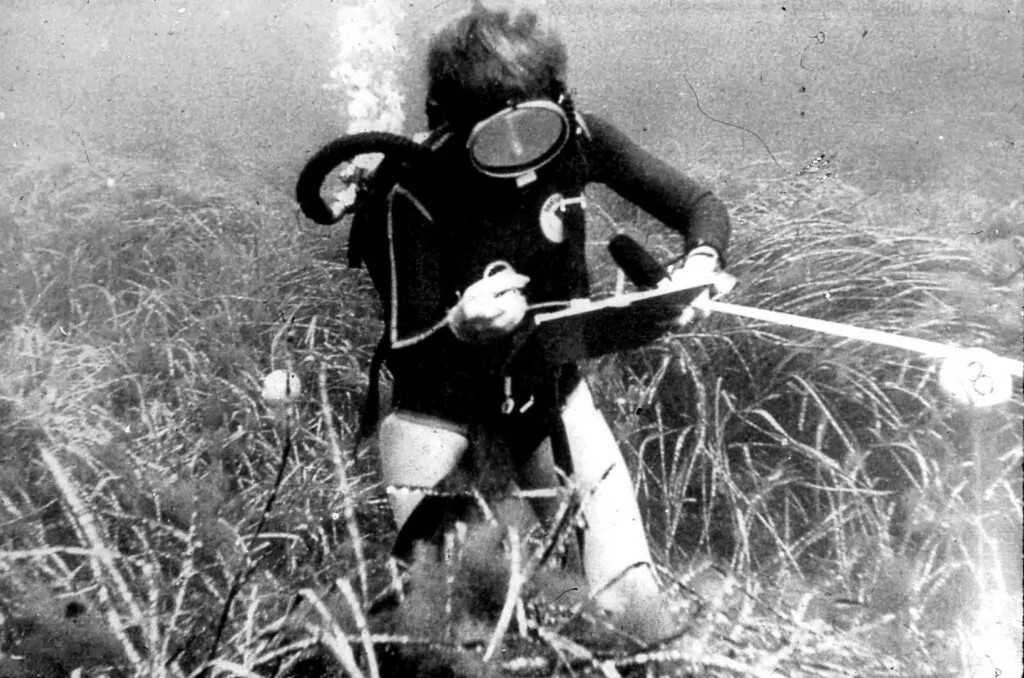
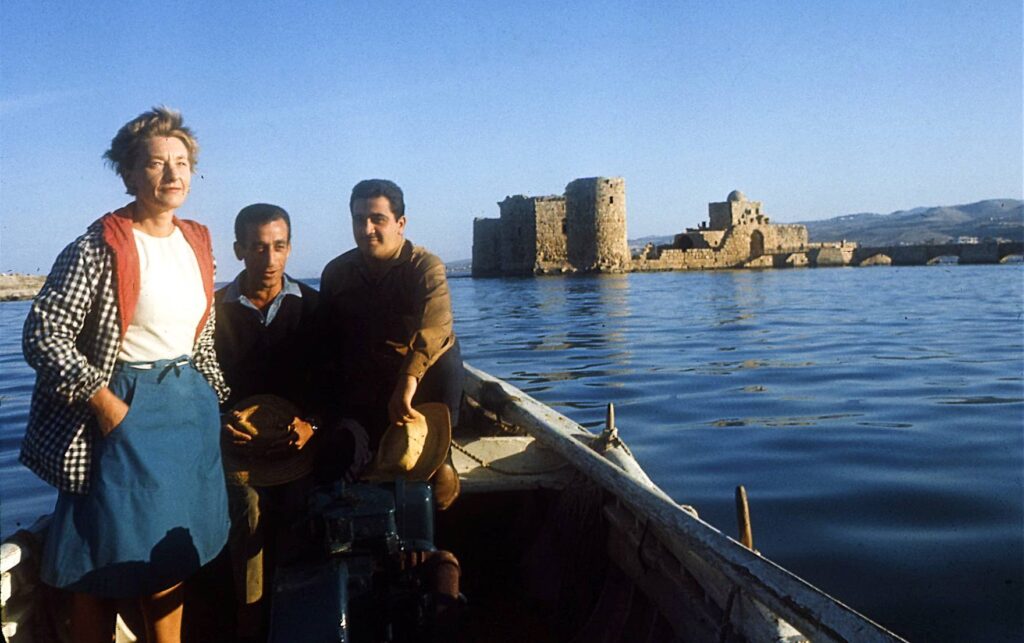
Frost died in 2010, having left her valuable art collection to establish the Honor Frost Foundation. The organisation says that it continues to support underwater excavations, offers grants for research projects and promotes the advancement and research, including publication, of maritime archaeology.
It focuses mainly on the eastern Mediterranean, specifically Lebanon, Syria, Cyprus and Egypt. “Honor's legacy continues to inspire a new generation of divers to protect underwater heritage,” it says.
The foundation also produces the podcast series Dive & Dig, the second season of which dropped in October, as reported on Divernet. It is presented by the foundation’s maritime archaeologist Dr Lucy Blue and historian Bettany Hughes.
Also on Divernet: Coins Led Divers To Ancient Roman Shipwreck, Wanted: Underwater Archaeology Volunteers, LabMA: Opening Doors To Diving In Montenegro
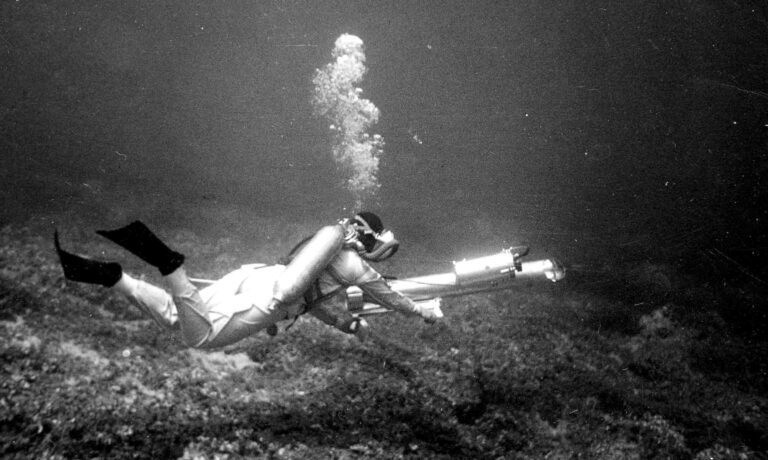

Absolutely brilliant
A very interesting subject, I have a few things I picked up diving many years ago in the pacific
Makes me want to dive.